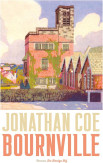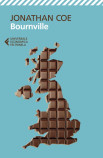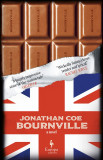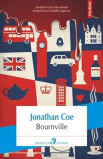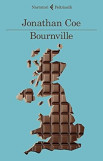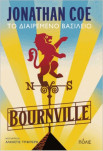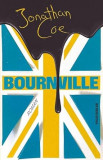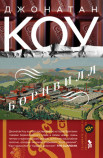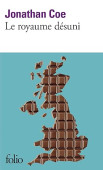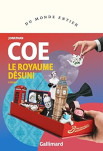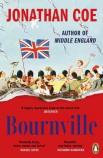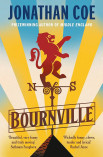Bournville
CATEGORY: Fiction
The first half of 2020 is not a time that most of us look back on with any nostalgia. Indeed, the whole period of the (first) Covid lockdown has been pushed so far to the back of our minds that it now seems unreal, almost like a fever dream. Were we really forbidden from leaving our homes for almost three months? Were we really not allowed to meet with our friends, to visit our elderly parents and give them a hug? Were kids really pulled out of school, and students out of university?
At the start of lockdown I was working on the closing chapters of Mr Wilder and Me. But at the same time a new novel was gestating, a sort of political companion-piece to Middle England which would look at the roots of two controversial recent decisions made by British voters: leaving the European Union, and electing Boris Johnson as Prime Minister. I wanted this novel to take a more long-term view than Middle England, though, and one of the earliest decisions I made was that it would begin in 1945, as Britain emerged from the trauma of the second world war.
Mr Wilder was finished, and lockdown restrictions began to ease: but then in June 2020, I was dealt a terrible and shocking blow when my lovely mother Janet died very suddenly. She did not die of Covid, but the circumstances of her death were made much more distressing by the pandemic. Her house had to be cleared, and I found myself inheriting an entire trunk-full of her papers and photographs. Sifting through these over the next few months, I realised that her life story covered the same period I’d already been considering writing about: 1945-2020.
And so I conceived the idea of a double narrative: a fictionalised biography of my mother, and a fictionalised history of the UK over the last seventy-five years. (At which point, it occurred to me that one of my literary heroes, BS Johnson, had responded to his mother’s death in the same way. The novel he wrote as a homage to her, See The Old Lady Decently, was very different to mine in form, but extremely similar in theme and scope.)
Looking for a way to structure the novel, I thought back to the chapter in Middle England which drew together all the narrative strands by switching between the viewpoints of different characters as they watched the 2012 London Olympic opening ceremony on their TVs. Maybe I could do the same thing again, but with a succession of public occasions? I sat down and drew up a quick list: the coronation of 1953, the World Cup final of 1966, Charles’ and Diana’s wedding, Diana’s funeral … I didn’t want this to become a novel about the royal family (in whom I have little interest) but I couldn’t escape the fact that, for better or worse, they had brought large numbers of the British people together in the preceding decades, in moments of publicly-shared emotion. All the same, I was determined to write a novel which concentrated on the ordinary people who were spectators to these events, with the royals themselves as distant, almost incidental figures in the background.
Bournville turned out to be one of my most personal as well as political novels. Its take on recent British history is gentler and more forgiving than, say, What a Carve Up! or Number 11. I think that, above all, this is because I wanted to write a book that my mother herself might have enjoyed, however mortified she would have been to find that she was the focus of narrative attention.

